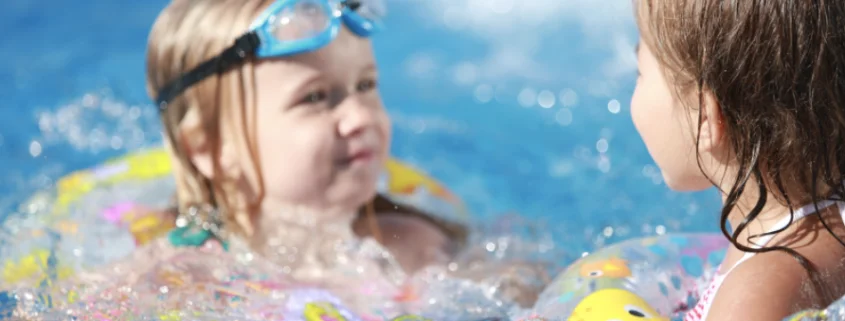Can You Get Lice From A Swimming Pool?
For some time now, we have been gradually coming out of the pandemic, with less and less restrictions in our public life. As a result, you have likely been taking trips to the pool with your kids during these hot summer months.
While COVID is still something to be wary of, another thing you may not be thinking as much about when you drop your kids off at the pool is head lice. Head lice are never ideal to catch, especially in conjunction with another pandemic-sized disease.
Though the chances of your child catching a wave and head lice on the same day are somewhat low, there are still a number of factors that could make it easy to catch lice at the swimming pool, so read on for lice-prevention methods related to the swimming pool, and you’ll be able to rest easy at the poolside this summer, knowing you are protecting your child against head lice.
Swimming Pool Lice Facts
Head Lice Can Not Swim
Or, they are just terrible swimmers, at least. When head lice are put underwater, they tightly grasp onto the strands of human hair and hold on for dear life until they are out of the water. Since lice have a strong claw at the end of each of their six legs, they are not often knocked off their host’s head from water activities.
Water Does Not Kill Head Lice
It is only a myth that swimming, washing hair, or bathing in the water will kill head lice. If only it were that easy. Unfortunately, head lice can hold their breath for over four hours, so shampooing, or any type of water activity alone does NOT kill head lice.
It Is Rare to Get Lice from Someone Else In the Pool
The likelihood of a louse being transferred through water is highly unlikely. According to the Centers for Disease Control and Prevention (CDC), a louse underwater would have to be knocked off of a host head and float to the top of the water. There it would wait for another host to pop up onto it, where it could grasp the hair and catch a ride. This scenario may happen occasionally, but is unlikely.
Direct head-to-head contact is the main cause for head lice being transferred.
Sharing Towels is the Most Common Way Head Lice is Transferred While Swimming
Grabbing random towels or using others’ towels to quickly dry off is much more likely to be the source of transferring head lice than swimming in the water.
A way to prevent this spread is by having each child keep their clothing in a neat pile, so that no one’s clothes touch. What this also does is keep the clothing away from the towels, which we recommend are not shared between multiple swimmers. Towels have interwoven fabric that is easily grasped by head lice and their claws, making them ideal for a louse to hitch a ride to a new host head.
Lice Prevention Happens Outside of the Pool
NOT sharing towels is essential.
Luckily, your kids are probably already in the habit of avoiding doing this after spending a few years in the pandemic. As mentioned above, a great prevention method is making sure everyone has their own towel, clearly marked with different defining colors to keep track of whose towels is whose.
If you are really concerned about lice, wearing a swimming cap is a viable option to prevent head lice.
Chlorine Is Not a Lice-Killer
No, the chlorine does NOT kill head lice, even after extended periods of time.
Head Lice Outbreaks Are More Common in the Summer
Head lice are most commonly passed through direct head-to-head contact. The summer months bring children together through playing, sports, vacations, and the like. Even after the pandemic’s social-distancing conditioning, the summer is still a high time for head lice.
This is not because of the weather, but because of the fact that children are spending more time together. Other times of the year we see spikes in head lice outbreaks are summer camp weeks, spring break, back to school, and extended school vacations, like Thanksgiving and winter break.
Best Way to Treat Lice in the Summer
If you or your child have gotten lice, or know someone who has gotten lice, then don’t hesitate to get treated or examined by Nitwits today, so that you can stop the spread with the best lice treatment in Louisville!










